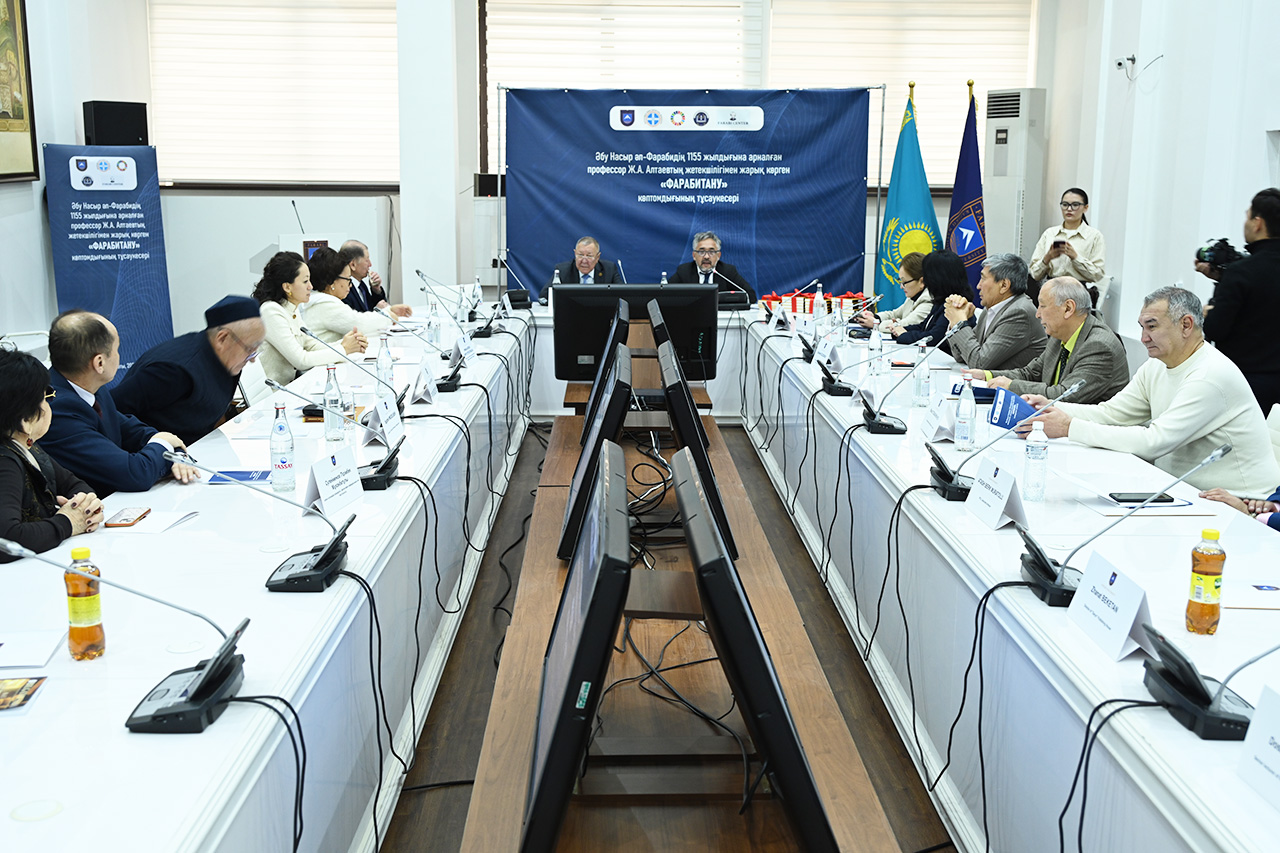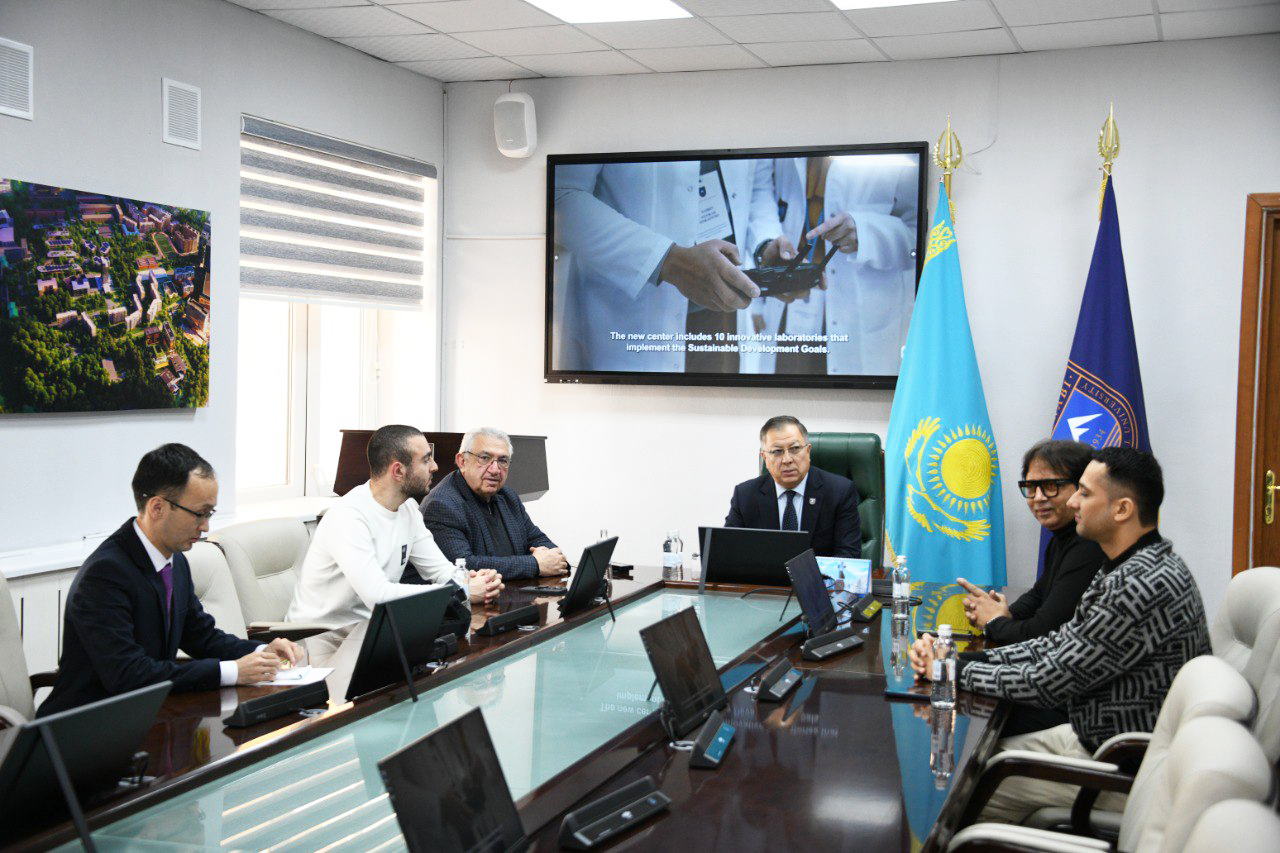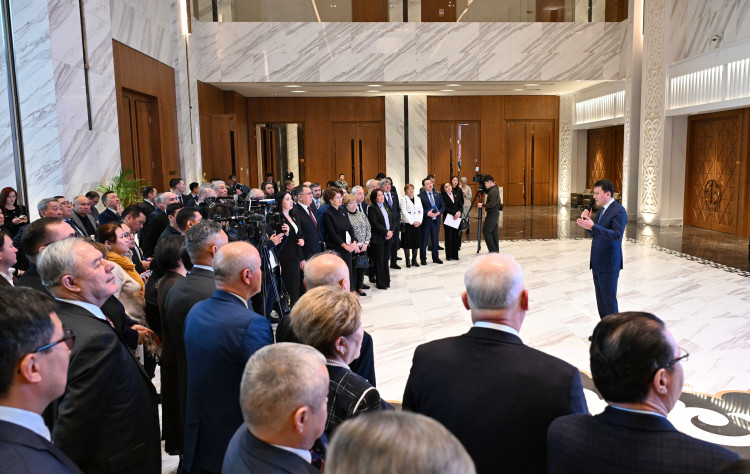
Dear colleagues!
The International Centre for the Rapprochement of Cultures under the auspices of UNESCO (Category II) in partnership with the Institute of Philosophy, Political Science andReligious Studies of the Ministry of Education and Science of Kazakhstan within the frameworkof International Decade for the Rapprochement of Cultures (2013-2022) and practicalimplementation of UNESCO ideas on building societies of knowledge invites you to take part atthe III International Conference for a Culture of Knowledge on the theme “ScientificKnowledge and Challenges of the Historical Memory: Local and Universal”.
The conference will take place: September 19, 2022, Monday, 10.00-18.40 (Almatytime), 6.00-14.40 (Central European time - CET)
Venue: Almaty, The Dostyk Hotel, 4th floor, «Alatau» Conference Hall
According to the difficult epidemiological situation, the conference will be held in acombined (online/offline) format.
Zoom link for online connection:
https://us06web.zoom.us/j/81424414112?pwd=MW9GT0Uva0ZUNHlzNUNyZTlZOUYyQT09
Conference ID: 814 2441 4112
Access code: 880898
Theme of the Conference is highly relevant to both regional and international contexts.International scientific community is concerned that outbreaks of violence in different timesoften started with conflicts in the sphere of historical memory. One of the practical areas ofactivity to achieve the goals of the IDRC is defined as “historical education in aim toovercome misconceptions and stereotypes”. In this regard, we propose to devote theConference to the comprehension of scientific knowledge, its boundaries and factors offormation of a historical memory, since historical science in particular is a base for buildingidentities and subjectivities of a wide variety of social groups. Additionally, within theframework of the conference we plan to analyze a proposed theme in regional context of CentralAsian societies of XX-XXI centuries, in cross-cultural perspective outline the causes andprospects of development of the theme.
Historical science in contemporary Central Asian societies is in the process ofassimilating of the conceptual experience of world science and overcoming consequences oftransition, when the search for historical legitimacy sometimes replaces the search for scientificknowledge.
Exactly for this reason process of modernization of historical consciousness becomes soimportant, results of which will be preconditions of formation of multicultural and highlyintellectual knowledge societies.
In this regard, the purpose of the Conference consists in comprehension of theactualization of significance of preservation of scientific knowledge in the field of historicalscience, historical memory and historical policy as factors of sustainable development ofcivilization in the contemporary world as well as development of methods of counteraction toquasi-scientific knowledge in social and human science field, which has destructive potential forrapprochement of cultures. We believe it will contribute to the evolution of informationsociety towards knowledge-based societies, where information becomes knowledge forbenefit of humankind, as emphasized in Report of the Director-General of UNESCO on thefollow-up to the World Summit on the Information Society (WSIS) October 15, 2021.
In accordance with the principles set forth in the UNESCO Recommendation concerningEducation for International Understanding, Cooperation and Peace and Education relating toHuman Rights and Fundamental Freedoms, all parties interested in the development of theeducational system should make a concerted effort to ensure that teachers and students acquirethe knowledge and abilities to demonstrate openness and proper appreciation of culturaldiversity.
“Indeed, history is the vast and varied experience of humanity, the encounter of peoplethrough the ages. Benefits to life and to science are inestimable if this encounter is to bebrotherly,” wrote the eminent historian and founder of the School of “Annals” Marc Bloch.
Within the framework of Conference, work of 3 sessions are planned:
Sessions of the conference:
1. Factors and levels of historical knowledge
Section will be devoted to comprehension of socio-cultural and political-economic factors in the formation of different forms and narratives of historicalknowledge, its dialogue, opposition and interdependence.
2.The Informational Field of Historical Memory
Section is planned to research of influence of media field on the formation ofhistorical memory, and the role of archetypes and images of traditional and post-traditional culture, actualized in the historical memory of contemporaryinformational society.
3.Memory politics and public consciousness: global experience and regionalfeatures of Central Asian societies
Section will be devoted to comprehension of the main priorities of memory policyin the societies of Central Asia, to the mechanisms of oblivion and revitalizationof historical facts, figures and epochs. It is proposed to explore the regionalspecifics of the "memorial boom" (increased interest to ancient and medievalhistory, the search for genealogies through genetics, permanent commemorativerenaming of cities, toponyms, streets, etc.) of the XX-XXI centuries in the cross-cultural context, to outline its causes and prospects.
We would be grateful for further distribution of this information to the interestedparties.
With Regards,
ORGANIZING COMMITTEE


